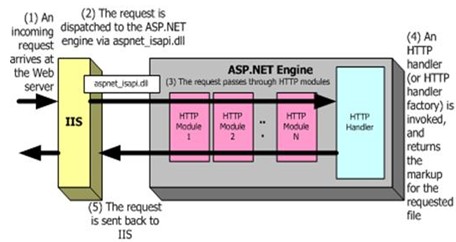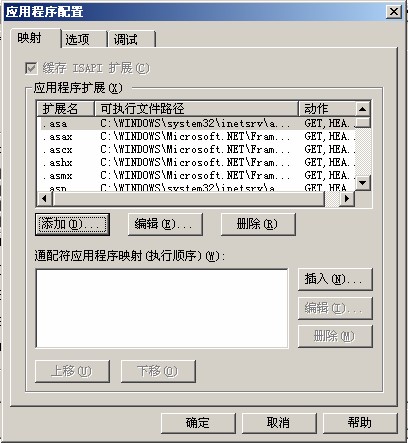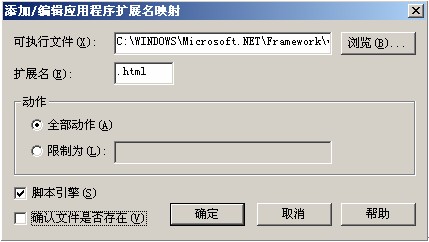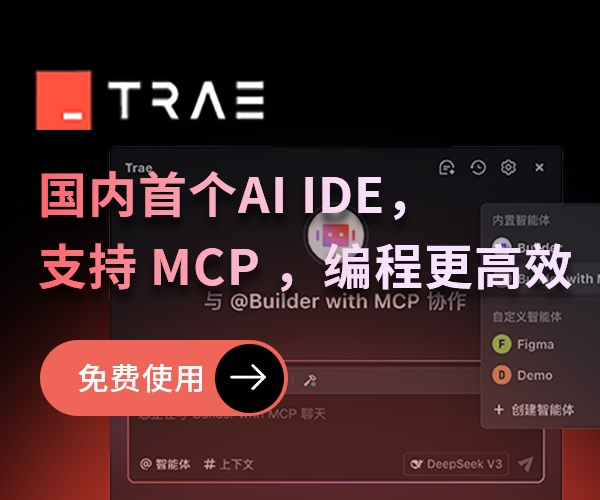Community Server专题四:HttpHandler
Community Server专题四:HttpHandler
HttpHandler实现了ISAPI Extention的功能,他处理请求(Request)的信息和发送响应(Response)。HttpHandler功能的实现通过实现IHttpHandler接口来达到。
看图先:

在ASP.NET 管道处理的末端是HTTP Hander,其实每个Asp.net的Page都实现了IHttpHander,在VS.net中的对象察看器中你可以证实这一点

具体的类是这样定义的:public class Page : TemplateControl, IhttpHandler。
接口IHttpHandler的定义如下:
 interface IHttpHandler
interface IHttpHandler
 {
{
 void ProcessRequest(HttpContext ctx);
void ProcessRequest(HttpContext ctx);
 bool IsReuseable { get; }
bool IsReuseable { get; }
 }
}
接口中ProcessRequest是添加自己的代码进行相应处理的地方。IsReuseable属性指明该HttpHandler的实现类是否需要缓存。
在CS中有很多继承IHttpHandler接口的类,我取出有代表性而又容易理解的一个做分析:找到CommunityServerComponents项目Components目录下的Redirect.cs文件,内容如下:
 //------------------------------------------------------------------------------
//------------------------------------------------------------------------------ // <copyright company="Telligent Systems">
// <copyright company="Telligent Systems"> // Copyright (c) Telligent Systems Corporation. All rights reserved.
// Copyright (c) Telligent Systems Corporation. All rights reserved. // </copyright>
// </copyright>  //------------------------------------------------------------------------------
//------------------------------------------------------------------------------
 using System;
using System; using System.Web;
using System.Web;
 namespace CommunityServer.Components
namespace CommunityServer.Components {
{ /// <summary>
/// <summary> /// Summary description for Redirect.
/// Summary description for Redirect. /// </summary>
/// </summary> public class Redirect : IHttpHandler
public class Redirect : IHttpHandler {
{ public Redirect()
public Redirect() {
{ //
// // TODO: Add constructor logic here
// TODO: Add constructor logic here //
// }
}
 public void ProcessRequest(HttpContext context)
public void ProcessRequest(HttpContext context) {
{ string url = context.Request.QueryString["u"];
string url = context.Request.QueryString["u"]; if(!Globals.IsNullorEmpty(url))
if(!Globals.IsNullorEmpty(url)) {
{ context.Response.Redirect(url);
context.Response.Redirect(url);
 }
} else
else {
{ context.Response.Redirect(Globals.GetSiteUrls().Home);
context.Response.Redirect(Globals.GetSiteUrls().Home); }
}
 context.Response.End();
context.Response.End(); }
}
 public bool IsReusable
public bool IsReusable {
{ get { return false; }
get { return false; } }
} }
} }
}
这里的Redirect功能是在web请求满足HttpHandler配置文件中预设条件下自动拦截执行的,在web.config中<httpHandlers>节点下可以看到
 <add verb="GET" path="Utility/redirect.aspx" type="CommunityServer.Components.Redirect, CommunityServer.Components" />
<add verb="GET" path="Utility/redirect.aspx" type="CommunityServer.Components.Redirect, CommunityServer.Components" />
对该类的配置
· verb可以是"GET"或"POST",表示对GET或POST的请求进行处理。"*"表示对所有请求进行处理,这里是对GET请求进行处理。
· path指明对相应的文件进行处理,"*.aspx"表示对发给所有ASPX页面的请求进行处理,这里单独对redirect.aspx页面进行处理。可以指明路径,如"blogs"。表明只对blogs目录下的redirect.aspx文件请求进行处理。
· type属性中,逗号前的字符串指明HttpHandler的实现类的类名,后面的字符串指明Dll文件的名称。
实际处理是怎么样的呢?其实redirect.aspx页面在CS项目中并不存在,CS把对redirect.aspx的请求处理交给了CommunityServer.Components.dll程序集中Redirect类进行处理。处理的过程是执行
public void ProcessRequest(HttpContext context)
方法(Redirect类下的ProcessRequest方法是对当前请求的上下文Context中Url是否包含“u”参数,如果有并且参数值不为null就调用Response.Redirect方法跳转到“u”参数值所执行的页面,如果没有参数或者参数值为空就跳转到CS的首页)。
另外在CS中对RSS和Trackback的处理都使用了httpHandler的处理方式。
前面提到,所有页面的基类Page都实现了HttpHandler接口,因此每个asp.net的页面都可以看成是一个HttpHandler处理类,只是配置部分在machine.config中
 <httpHandlers>
<httpHandlers> <add verb="*" path="*.vjsproj" type="System.Web.HttpForbiddenHandler"/><add verb="*" path="*.java" type="System.Web.HttpForbiddenHandler"/><add verb="*" path="*.jsl" type="System.Web.HttpForbiddenHandler"/><add verb="*" path="trace.axd" type="System.Web.Handlers.TraceHandler"/>
<add verb="*" path="*.vjsproj" type="System.Web.HttpForbiddenHandler"/><add verb="*" path="*.java" type="System.Web.HttpForbiddenHandler"/><add verb="*" path="*.jsl" type="System.Web.HttpForbiddenHandler"/><add verb="*" path="trace.axd" type="System.Web.Handlers.TraceHandler"/> <add verb="*" path="*.aspx" type="System.Web.UI.PageHandlerFactory"/>
<add verb="*" path="*.aspx" type="System.Web.UI.PageHandlerFactory"/> <add verb="*" path="*.ashx" type="System.Web.UI.SimpleHandlerFactory"/>
<add verb="*" path="*.ashx" type="System.Web.UI.SimpleHandlerFactory"/> <add verb="*" path="*.asmx" type="System.Web.Services.Protocols.WebServiceHandlerFactory, System.Web.Services, Version=1.0.5000.0, Culture=neutral, PublicKeyToken=b03f5f7f11d50a3a" validate="false"/>
<add verb="*" path="*.asmx" type="System.Web.Services.Protocols.WebServiceHandlerFactory, System.Web.Services, Version=1.0.5000.0, Culture=neutral, PublicKeyToken=b03f5f7f11d50a3a" validate="false"/> <add verb="*" path="*.rem" type="System.Runtime.Remoting.Channels.Http.HttpRemotingHandlerFactory, System.Runtime.Remoting, Version=1.0.5000.0, Culture=neutral, PublicKeyToken=b77a5c561934e089" validate="false"/>
<add verb="*" path="*.rem" type="System.Runtime.Remoting.Channels.Http.HttpRemotingHandlerFactory, System.Runtime.Remoting, Version=1.0.5000.0, Culture=neutral, PublicKeyToken=b77a5c561934e089" validate="false"/> <add verb="*" path="*.soap" type="System.Runtime.Remoting.Channels.Http.HttpRemotingHandlerFactory, System.Runtime.Remoting, Version=1.0.5000.0, Culture=neutral, PublicKeyToken=b77a5c561934e089" validate="false"/>
<add verb="*" path="*.soap" type="System.Runtime.Remoting.Channels.Http.HttpRemotingHandlerFactory, System.Runtime.Remoting, Version=1.0.5000.0, Culture=neutral, PublicKeyToken=b77a5c561934e089" validate="false"/> <add verb="*" path="*.asax" type="System.Web.HttpForbiddenHandler"/>
<add verb="*" path="*.asax" type="System.Web.HttpForbiddenHandler"/> <add verb="*" path="*.ascx" type="System.Web.HttpForbiddenHandler"/>
<add verb="*" path="*.ascx" type="System.Web.HttpForbiddenHandler"/> <add verb="GET,HEAD" path="*.dll.config" type="System.Web.StaticFileHandler"/>
<add verb="GET,HEAD" path="*.dll.config" type="System.Web.StaticFileHandler"/> <add verb="GET,HEAD" path="*.exe.config" type="System.Web.StaticFileHandler"/>
<add verb="GET,HEAD" path="*.exe.config" type="System.Web.StaticFileHandler"/> <add verb="*" path="*.config" type="System.Web.HttpForbiddenHandler"/>
<add verb="*" path="*.config" type="System.Web.HttpForbiddenHandler"/> <add verb="*" path="*.cs" type="System.Web.HttpForbiddenHandler"/>
<add verb="*" path="*.cs" type="System.Web.HttpForbiddenHandler"/> <add verb="*" path="*.csproj" type="System.Web.HttpForbiddenHandler"/>
<add verb="*" path="*.csproj" type="System.Web.HttpForbiddenHandler"/> <add verb="*" path="*.vb" type="System.Web.HttpForbiddenHandler"/>
<add verb="*" path="*.vb" type="System.Web.HttpForbiddenHandler"/> <add verb="*" path="*.vbproj" type="System.Web.HttpForbiddenHandler"/>
<add verb="*" path="*.vbproj" type="System.Web.HttpForbiddenHandler"/> <add verb="*" path="*.webinfo" type="System.Web.HttpForbiddenHandler"/>
<add verb="*" path="*.webinfo" type="System.Web.HttpForbiddenHandler"/> <add verb="*" path="*.asp" type="System.Web.HttpForbiddenHandler"/>
<add verb="*" path="*.asp" type="System.Web.HttpForbiddenHandler"/> <add verb="*" path="*.licx" type="System.Web.HttpForbiddenHandler"/>
<add verb="*" path="*.licx" type="System.Web.HttpForbiddenHandler"/> <add verb="*" path="*.resx" type="System.Web.HttpForbiddenHandler"/>
<add verb="*" path="*.resx" type="System.Web.HttpForbiddenHandler"/> <add verb="*" path="*.resources" type="System.Web.HttpForbiddenHandler"/>
<add verb="*" path="*.resources" type="System.Web.HttpForbiddenHandler"/> <add verb="GET,HEAD" path="*" type="System.Web.StaticFileHandler"/>
<add verb="GET,HEAD" path="*" type="System.Web.StaticFileHandler"/> <add verb="*" path="*" type="System.Web.HttpMethodNotAllowedHandler"/>
<add verb="*" path="*" type="System.Web.HttpMethodNotAllowedHandler"/> </httpHandlers>
</httpHandlers>借助一个工具:Reflector,看看Page类下的HttpHandler处理方法ProcessRequest都做了什么
 [EditorBrowsable(EditorBrowsableState.Never)]
[EditorBrowsable(EditorBrowsableState.Never)] public void ProcessRequest(HttpContext context)
public void ProcessRequest(HttpContext context) {
{ this.SetIntrinsics(context);
this.SetIntrinsics(context); this.ProcessRequest();
this.ProcessRequest(); }
} private void SetIntrinsics(HttpContext context)
private void SetIntrinsics(HttpContext context) {
{ this._context = context;
this._context = context; this._request = context.Request;
this._request = context.Request; this._response = context.Response;
this._response = context.Response; this._application = context.Application;
this._application = context.Application; this._cache = context.Cache;
this._cache = context.Cache; if ((this._clientTarget != null) && (this._clientTarget.Length > 0))
if ((this._clientTarget != null) && (this._clientTarget.Length > 0)) {
{ this._request.ClientTarget = this._clientTarget;
this._request.ClientTarget = this._clientTarget; }
} base.HookUpAutomaticHandlers();
base.HookUpAutomaticHandlers(); }
} private void ProcessRequest()
private void ProcessRequest() {
{ Thread thread1 = Thread.CurrentThread;
Thread thread1 = Thread.CurrentThread; CultureInfo info1 = thread1.CurrentCulture;
CultureInfo info1 = thread1.CurrentCulture; CultureInfo info2 = thread1.CurrentUICulture;
CultureInfo info2 = thread1.CurrentUICulture; this.FrameworkInitialize();
this.FrameworkInitialize(); try
try {
{ try
try {
{ if (this.IsTransacted)
if (this.IsTransacted) {
{ this.ProcessRequestTransacted();
this.ProcessRequestTransacted(); }
} else
else {
{ this.ProcessRequestMain();
this.ProcessRequestMain(); }
} this.ProcessRequestEndTrace();
this.ProcessRequestEndTrace(); }
} finally
finally {
{ this.ProcessRequestCleanup();
this.ProcessRequestCleanup(); InternalSecurityPermissions.ControlThread.Assert();
InternalSecurityPermissions.ControlThread.Assert(); thread1.CurrentCulture = info1;
thread1.CurrentCulture = info1; thread1.CurrentUICulture = info2;
thread1.CurrentUICulture = info2; }
} }
} catch
catch {
{ throw;
throw; }
} }
}
在Page类的ProcessRequest方法先是把上下文Context内容赋值到当前Page中的一些属性里,然后调用System.Web.UI.TemplateControl中的HookUpAutomaticHandlers()
 internal void HookUpAutomaticHandlers()
internal void HookUpAutomaticHandlers() {
{ if (this.SupportAutoEvents)
if (this.SupportAutoEvents) {
{ SimpleBitVector32 vector1 = new SimpleBitVector32(this.AutoHandlers);
SimpleBitVector32 vector1 = new SimpleBitVector32(this.AutoHandlers); InternalSecurityPermissions.Reflection.Assert();
InternalSecurityPermissions.Reflection.Assert(); if (!vector1[1])
if (!vector1[1]) {
{ vector1[1] = true;
vector1[1] = true; this.GetDelegateInformation("Page_Init", ref vector1, 2, 4);
this.GetDelegateInformation("Page_Init", ref vector1, 2, 4); this.GetDelegateInformation("Page_Load", ref vector1, 8, 0x10);
this.GetDelegateInformation("Page_Load", ref vector1, 8, 0x10); this.GetDelegateInformation("Page_DataBind", ref vector1, 0x20, 0x40);
this.GetDelegateInformation("Page_DataBind", ref vector1, 0x20, 0x40); this.GetDelegateInformation("Page_PreRender", ref vector1, 0x80, 0x100);
this.GetDelegateInformation("Page_PreRender", ref vector1, 0x80, 0x100); this.GetDelegateInformation("Page_Unload", ref vector1, 0x200, 0x400);
this.GetDelegateInformation("Page_Unload", ref vector1, 0x200, 0x400); this.GetDelegateInformation("Page_Error", ref vector1, 0x800, 0x1000);
this.GetDelegateInformation("Page_Error", ref vector1, 0x800, 0x1000); this.GetDelegateInformation("Page_AbortTransaction", ref vector1, 0x2000, 0x4000);
this.GetDelegateInformation("Page_AbortTransaction", ref vector1, 0x2000, 0x4000); this.GetDelegateInformation("OnTransactionAbort", ref vector1, 0x8000, 0x10000);
this.GetDelegateInformation("OnTransactionAbort", ref vector1, 0x8000, 0x10000); this.GetDelegateInformation("Page_CommitTransaction", ref vector1, 0x20000, 0x40000);
this.GetDelegateInformation("Page_CommitTransaction", ref vector1, 0x20000, 0x40000); this.GetDelegateInformation("OnTransactionCommit", ref vector1, 0x80000, 0x100000);
this.GetDelegateInformation("OnTransactionCommit", ref vector1, 0x80000, 0x100000); this.AutoHandlers = vector1.Data;
this.AutoHandlers = vector1.Data; }
} if (vector1[2])
if (vector1[2]) {
{ base.Init += this.GetDelegateFromMethodName("Page_Init", vector1[4]);
base.Init += this.GetDelegateFromMethodName("Page_Init", vector1[4]); }
} if (vector1[8])
if (vector1[8]) {
{ base.Load += this.GetDelegateFromMethodName("Page_Load", vector1[0x10]);
base.Load += this.GetDelegateFromMethodName("Page_Load", vector1[0x10]); }
} if (vector1[0x20])
if (vector1[0x20]) {
{ base.DataBinding += this.GetDelegateFromMethodName("Page_DataBind", vector1[0x40]);
base.DataBinding += this.GetDelegateFromMethodName("Page_DataBind", vector1[0x40]); }
} if (vector1[0x80])
if (vector1[0x80]) {
{ base.PreRender += this.GetDelegateFromMethodName("Page_PreRender", vector1[0x100]);
base.PreRender += this.GetDelegateFromMethodName("Page_PreRender", vector1[0x100]); }
} if (vector1[0x200])
if (vector1[0x200]) {
{ base.Unload += this.GetDelegateFromMethodName("Page_Unload", vector1[0x400]);
base.Unload += this.GetDelegateFromMethodName("Page_Unload", vector1[0x400]); }
} if (vector1[0x800])
if (vector1[0x800]) {
{ this.Error += this.GetDelegateFromMethodName("Page_Error", vector1[0x1000]);
this.Error += this.GetDelegateFromMethodName("Page_Error", vector1[0x1000]); }
} if (vector1[0x2000])
if (vector1[0x2000]) {
{ this.AbortTransaction += this.GetDelegateFromMethodName("Page_AbortTransaction", vector1[0x4000]);
this.AbortTransaction += this.GetDelegateFromMethodName("Page_AbortTransaction", vector1[0x4000]); }
} else if (vector1[0x8000])
else if (vector1[0x8000]) {
{ this.AbortTransaction += this.GetDelegateFromMethodName("OnTransactionAbort", vector1[0x10000]);
this.AbortTransaction += this.GetDelegateFromMethodName("OnTransactionAbort", vector1[0x10000]); }
} if (vector1[0x20000])
if (vector1[0x20000]) {
{ this.CommitTransaction += this.GetDelegateFromMethodName("Page_CommitTransaction", vector1[0x40000]);
this.CommitTransaction += this.GetDelegateFromMethodName("Page_CommitTransaction", vector1[0x40000]); }
} else if (vector1[0x80000])
else if (vector1[0x80000]) {
{ this.CommitTransaction += this.GetDelegateFromMethodName("OnTransactionCommit", vector1[0x100000]);
this.CommitTransaction += this.GetDelegateFromMethodName("OnTransactionCommit", vector1[0x100000]); }
} }
} }
}

方法连接一些Handlers,通过委托加载相关的事件进行页面的初始化工作。
我不再往下分析,整个Page页面很庞大,有兴趣的朋友自己慢慢研究,说这些只是要明白一点,任何一个Page页面都是HttpHandler,页面处理是从这里开始。
在.Text的早期版本中(很久没有看.Text的代码了)安装时要配置IIS

在asp.net管道处理的级别上对一些扩展名称做映射,如*.html(其实.Text是做了*.*到ASP.NET映射,够狠!),该扩展名的文件原本直接由IIS提交给请求者而不会经过asp.net处理机制处理,因此asp.net管道中的httpHandler是不可能拦截到的,但是只要做如下操作

这时,IIS会把对*.html文件的请求也交由ASP.NET机制去处理,继承IHttpHandler就可以拦截它(.Text中实际继承的是IHttpHandlerFactory)。有了这些知识就不难理解为什么你在.Text系统下察看blog时请求的是html文件(其实请求的html文件根本就不存在),返回的信息确是动态页面的内容,这与大型CMS系统不同,并不是为了节约系统资源预先生成html。DotText之所以这样做牵涉到Permalink和Search Engine Friendly,有这方面兴趣的朋友可以在google找到很多相关资源。
虽然CS中的blog与.Text有密不可分的关系,但是CS中的blog已经没有采取早期.Text的Url扩展名为.html的访问机制,而是直接采用.aspx扩展名,也许更多考虑的是CS的部署问题,毕竟不是所有的CS使用者都会有可以自己配置IIS扩展名映射的权限,大多数虚拟主机也是不提供这样功能的。
HttpHandler还可以用来处理图片与下载的盗链问题,先在IIS中添加一些常用图片扩展名的映射到IIS中用Asp.net来处理对它的请求,这样就可以通过继承IHttpHandler的类和适当的配置来处理用户的请求,大致说一下过程:
在实现IHttpHandler接口的类中,ProcessRequest方法先用![]() 判断上次请求的URL(为什么是判断上次请求的URL,请看我上一篇专题中对IIS运行过程的讲解),如果这个URL是在你限定内那么就调用Response.WriteFile方法输出文件,如果不是,你可以自己采取一些措施,比如输出一个带有警告字样的图片等等。当然,使用HttpHandler处理图片与下载盗链问题是需要IIS控制权限的,而且需要浪费一些系统资源。
判断上次请求的URL(为什么是判断上次请求的URL,请看我上一篇专题中对IIS运行过程的讲解),如果这个URL是在你限定内那么就调用Response.WriteFile方法输出文件,如果不是,你可以自己采取一些措施,比如输出一个带有警告字样的图片等等。当然,使用HttpHandler处理图片与下载盗链问题是需要IIS控制权限的,而且需要浪费一些系统资源。






